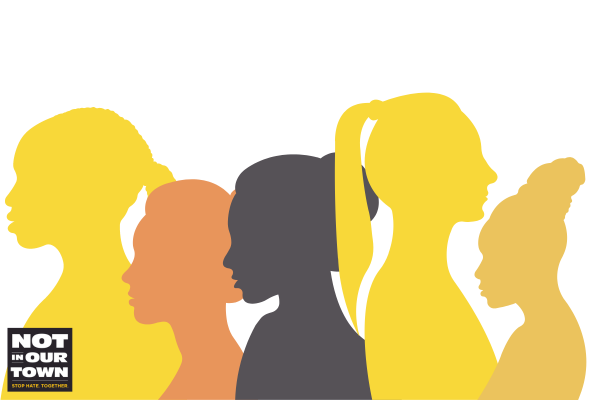 |
| Compiled by Jamie Lott-Jones and Mary Sok - NIOS Education Advisors |
The National Women’s History Month’s theme for 2024 celebrates “Women Who Advocate for Equity, Diversity and Inclusion.” The theme recognizes women throughout the country who understand that, for a positive future, we need to eliminate bias and discrimination from our lives and institutions. This year’s theme embodies the mission of NIOT’s work!
As members of the NIOT community, we encourage you to highlight women who are dedicated to equity and to eliminating exclusion in our common quest to build safe, inclusive communities. In addition to famous women in history, consider exposing your students to lesser-known women change makers within our communities so that our students can see the potential in themselves to affect change.
Awareness months are opportunities to deepen our knowledge of and attention to the histories and contemporary experiences of historically marginalized communities. However, the focus on celebrating these communities over one particular month can further marginalize the very experiences we are hoping to elevate. With this in mind, what follows is an invitation to engage with important themes raised by Women’s History Month this March and throughout all of the months of the year. (Facing History)
Here are some suggested materials that highlight women who are dedicated to eliminating bias and discrimination. We hope they help you promote this year’s Women’s History Month theme “Women Who Advocate for Equity, Diversity and Inclusion.”
Origins of Women’s History Month
The celebration of Women’s History Month grew out of a weeklong celebration of women’s contributions to culture, history, and society organized by the school district of Sonoma, California, in 1978. Presentations were given at dozens of schools, hundreds of students participated in a “Real Woman” essay contest and a parade was held in downtown Santa Rosa.
A few years later, the idea caught on within communities, school districts, and organizations across the country. In 1980, President Jimmy Carter issued the first presidential proclamation declaring the week of March 8 as National Women’s History Week. The U.S. Congress followed suit the next year, passing a resolution establishing a national celebration. Six years later, the National Women’s History Project successfully petitioned Congress to expand the event to the entire month of March. https://www.history.com/topics/holidays/womens-history-month
NIOT Resources
Eliza Riley- Disability Rights Advocate
https://www.niot.org/nios-video/eliza-riley-advocate
At the anniversary of the American Disabilities Act, a group of disability rights advocates marched in solidarity to assert their rights as Americans and human beings. Many are here because of the work of Eliza Riley, a disability rights advocate in Silicon Valley, who has developed a youth leadership program for people with disabilities.
Extraordinary Upstander - Charlotta Bass- advocate
https://www.niot.org/nios-video/extraordinary-upstander-charlotta-bass
The first African-American woman to own and publish a newspaper, The Eagle (later, The California Eagle), Charlotta Bass was a tireless advocate for social change and one of the most influential African-Americans of the 20th century. Based in Los Angeles, Bass utilized the newspaper as a platform to address issues of race and gender equality, police brutality, and media stereotyping in an era when women and African Americans were largely being excluded from public discourse.
Access the lesson at: https://www.niot.org/nios/lesson/extraordinary-upstander-charlotta-bass
Bella and the Ribbon Skirt - Honoring Indigenous Traditions
https://www.niot.org/nios-video/extraordinary-upstander-jennifer-gaxiola
A 5th grader named Bella decided to wear her traditional ribbon skirt to "Formal Wear Day" at her school in Canada. She was shocked and hurt when an educator aide in her classroom told her that her skirt was inappropriate for formal day and "didn't match."
Facing History Resources
https://facingtoday.facinghistory.org/topic/womens-history-month
A blog post on multiple lessons and strategies to implement for Women’s History Month
This mini-lesson provides an overview of the ERA and a look at the history behind the struggle to ratify the amendment that would formally guarantee women equal rights to men under the US Constitution.
https://www.facinghistory.org/resource-library/power-representation-patsy-takemoto-mink-shirley-chisholm-kamala-harris
Students learn about the groundbreaking careers of Patsy Takemoto Mink and Shirley Chisholm and consider the significance of Vice President Kamala Harris’s election.
https://www.facinghistory.org/resource-library/black-womens-activism-long-history-behind-metoo
This lesson enables students to draw connections between the long history of Black women’s activism against sexual violence and gender discrimination with the #MeToo movement today.
https://www.facinghistory.org/ideas-week/10-women-who-made-history
This resource provides an opportunity to learn about the accomplishments of a diverse group of women past and present.
Additional Resources
https://www.weteachnyc.org/resources/collection/march-womens-history-month/
This Celebrate Women's History collection highlights texts, primary sources, lesson plans, and videos to use with your students as they learn about the key figures, events, and legislation related to women's struggle for equal rights for the past 150 years. This comprehensive site includes primary sources, lessons, online exhibits, and interviews for all grade levels.
https://www.learningforjustice.org/magazine/a-more-complete-womens-history
Article: A More Complete Women’s History- In this article, the author argues that teachers should go beyond “famous firsts” and teach about the many ways women show up in the world.
https://www.pbs.org/newshour/classroom/lesson-plans/2018/03/how-outstanding-women-in-stem-fields-overcame-obstacles-lesson-plan
This lesson explores the careers of 19 great female scientists and the obstacles they overcame. It asks students to look at their schools, teachers, friends, and families to see whether those obstacles continue to operate in their lives.
https://www.womenshistory.org/students-and-educators
The National Women’s History Museum offers free virtual field trips for schools and youth education groups
.https://ncheteach.org/resources/womens-history/
NCHE has a curated list of websites featuring resources that explore women’s history in the United States and the world. These sites offer historical overviews, a variety of primary sources for analysis, and suggestions for using primary sources with learners of all ages.
https://myhero.com/women
My Hero- women from all walks of life are heroes. Have students research a woman who has made a heroic change in the world.
https://www.powtoon.com/blog/womens-history-month-4-ways-to-celebrate-diversity-inclusion/
4 ways to celebrate Diversity & Inclusion this Women’s History Month
Add new comment